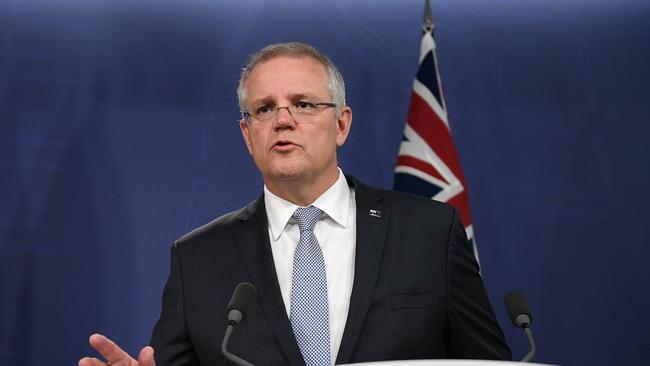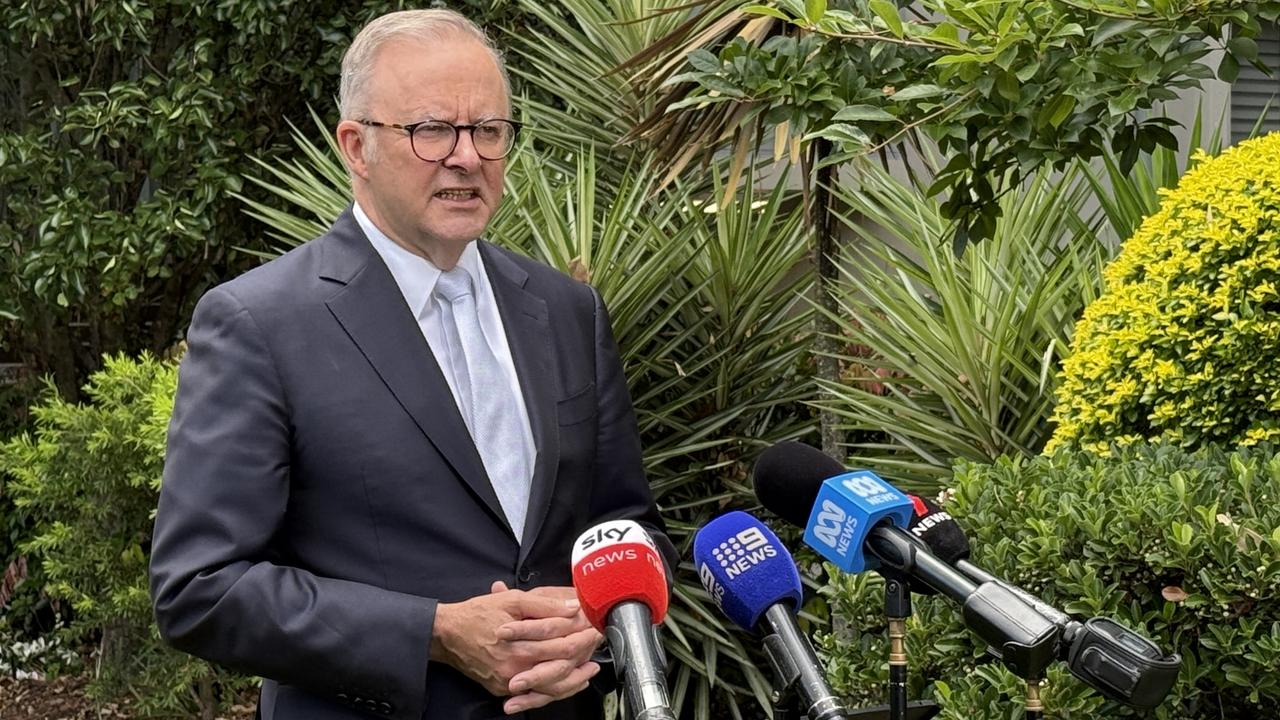Religious freedom bill: groups ‘can base hirings on faith’
While groups can ‘hire on faith’, religious statements at work parties won’t be protected.

Churches, faith-based schools and charities will be able to employ staff based on their beliefs but controversial religious statements made at work Christmas parties will not be protected under a raft of changes to Scott Morrison’s religious discrimination bill.
The overhaul, announced by the Prime Minister and Attorney-General Christian Porter on Tuesday, came after faith-based organisations, business leaders and LGBTI groups lashed various sections of the government’s first exposure draft released in August.
READ MORE: Australians respect religion despite ‘divisive’ effect | Church welcomes revised religious freedom bill | Porter expands bill to protect hospitals, aged care providers
The Australian understands Mr Morrison is open to further changes and the Coalition will work with Labor on amendments ahead of the legislation being finalised in February.
Following extensive consultation on the religious freedoms package, including almost 6000 submissions and Mr Porter meeting with close to 100 stakeholder groups, the government has decided on 11 changes to the bill.
Mr Porter has moved to clarify that a religious school or church does not discriminate if they preference staff and students on their faith. Religious benevolent institutions, including Vinnies, will also be included in the definition of “religious bodies” that can make decisions based on the faith of their organisation without being discriminatory.
“A Catholic school — we want to be utterly clear — could fill a position with a Catholic simply because their preference is it be filled by a Catholic,” Mr Porter said.
Association of Independent Schools NSW chief executive Geoff Newcombe said amendments appeared to address the original concern of faith-based schools over their right to preference the employment of teachers of the same faith.
The new draft bill also includes stronger protections for other religious groups and individuals, including faith-based hospitals and aged-care facilities, and provides a clearer definition of vilification as “incitement of hatred or violence”.
AiGroup, which represents 60,000 businesses employing more than a million staff, said “more changes to the bill would be needed to address the genuine concerns of employers”.
The group’s chief executive, Innes Willox, welcomed a clearer definition of when employers could attempt to restrict employees’ statements of belief. “In the previous version of the bill, employers could not restrict an employee’s statement of belief ‘other than at a time when the employee (was) performing work on behalf of the employer’. This phrase has been amended in the second exposure draft to ‘other than in the course of the employee’s employment’,” he said.
Under the changes, employers could restrict controversial religious statements at work functions, including Christmas parties.
Notre Dame School of Law adjunct associate professor Mark Fowler said it was clear the government had understood and, in many respects, heeded the concerns of religious leaders but there remained areas of concern.
Some types of conduct under the first draft were not discrimination if a person could reasonably consider it to be in accordance with the religious group’s or person’s faith, but that test is now left to a person of the same religion as the group or individual whose behaviour is in question.
Professor Fowler said this was problematic, citing the Israel Folau case, which fuelled the religious discrimination debate.
“If the Folau controversy has demonstrated anything, it is that reasonable people can differ on what the requirements of doctrine are,” he said. “Whether other Christians hold Folau’s particular view, or support the way in which he expressed that view, should not determine whether he has been discriminated against on the basis of sincerely-held religious beliefs.”
After announcing the amendments, the Prime Minister said he wanted the process to be “patient, unifying and inclusive”.
Mr Morrison said the government would continue close consultation over what was a key election pledge to support religious freedoms. “I gave a commitment that we would ensure that people would not be discriminated against in this country, as a basis of their religious beliefs or non-beliefs,” he said.
“There were lots of suggestions that this would be a divisive debate and I don’t believe it has been and I don’t believe it needs to be.”
Mr Porter said the revised bill would be ready by the first parliamentary sitting fortnight, which begins on February 4.
The Attorney-General, who previously flagged minor changes to his draft legislation, said he “would very much doubt” the need for a third exposure draft.
Provisions aimed at supporting existing conscientious objection processes have been narrowed so they apply only to nurses, midwives, doctors, psychologists and pharmacists. The provisions have been made clearer in relation to not allowing a right to discriminate “based upon gender or other characteristics”.


